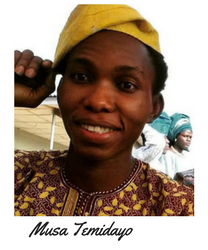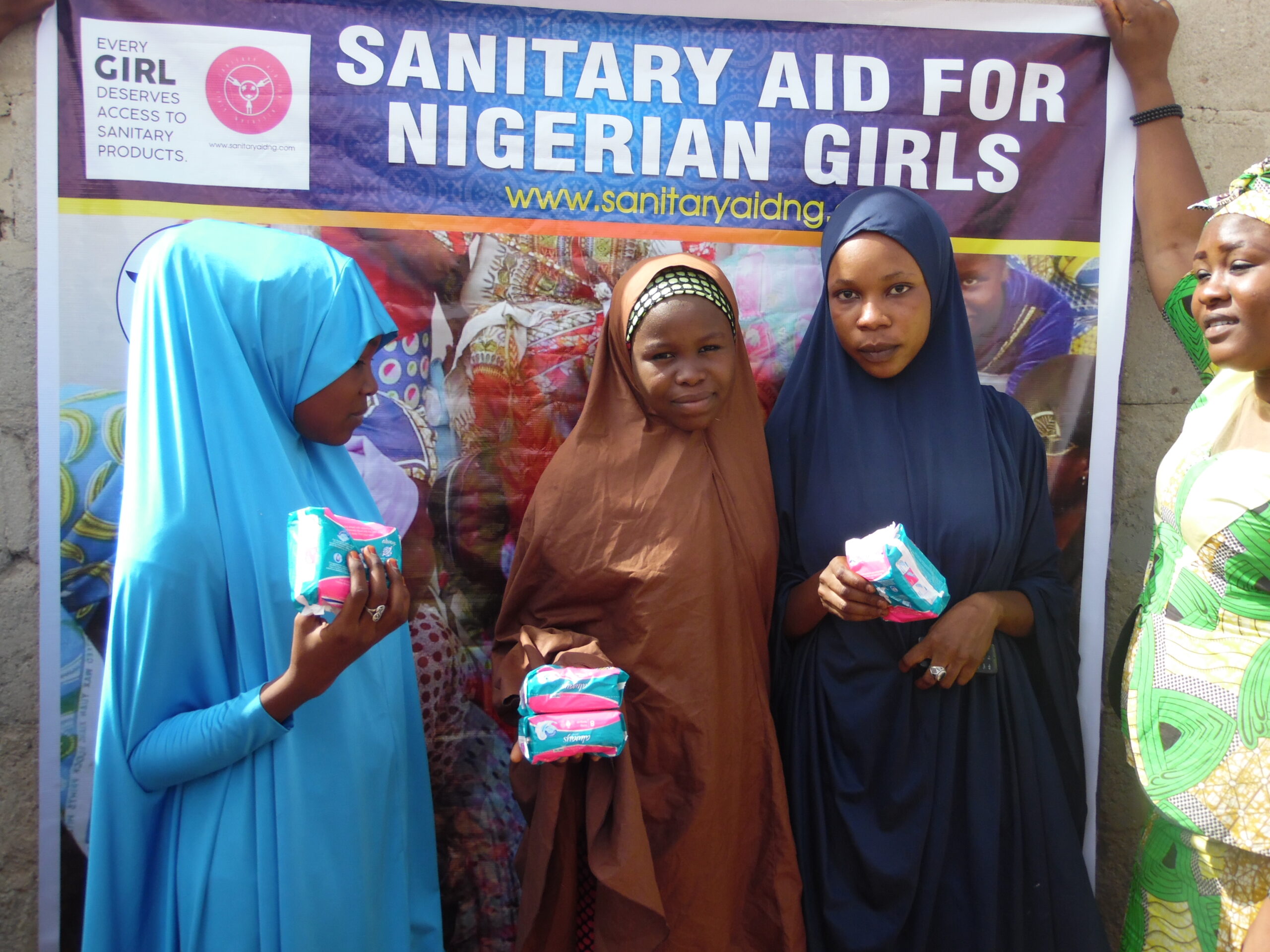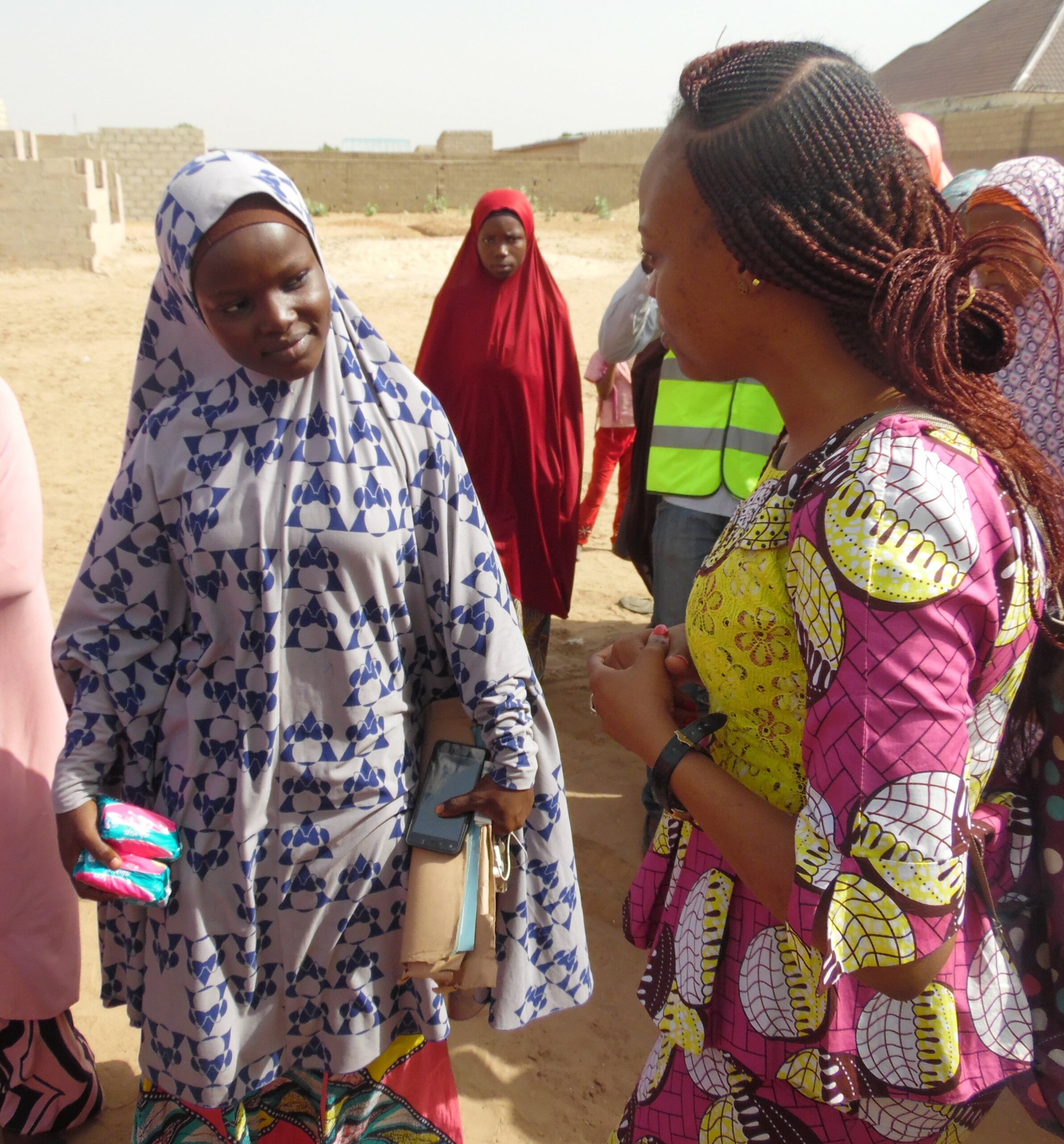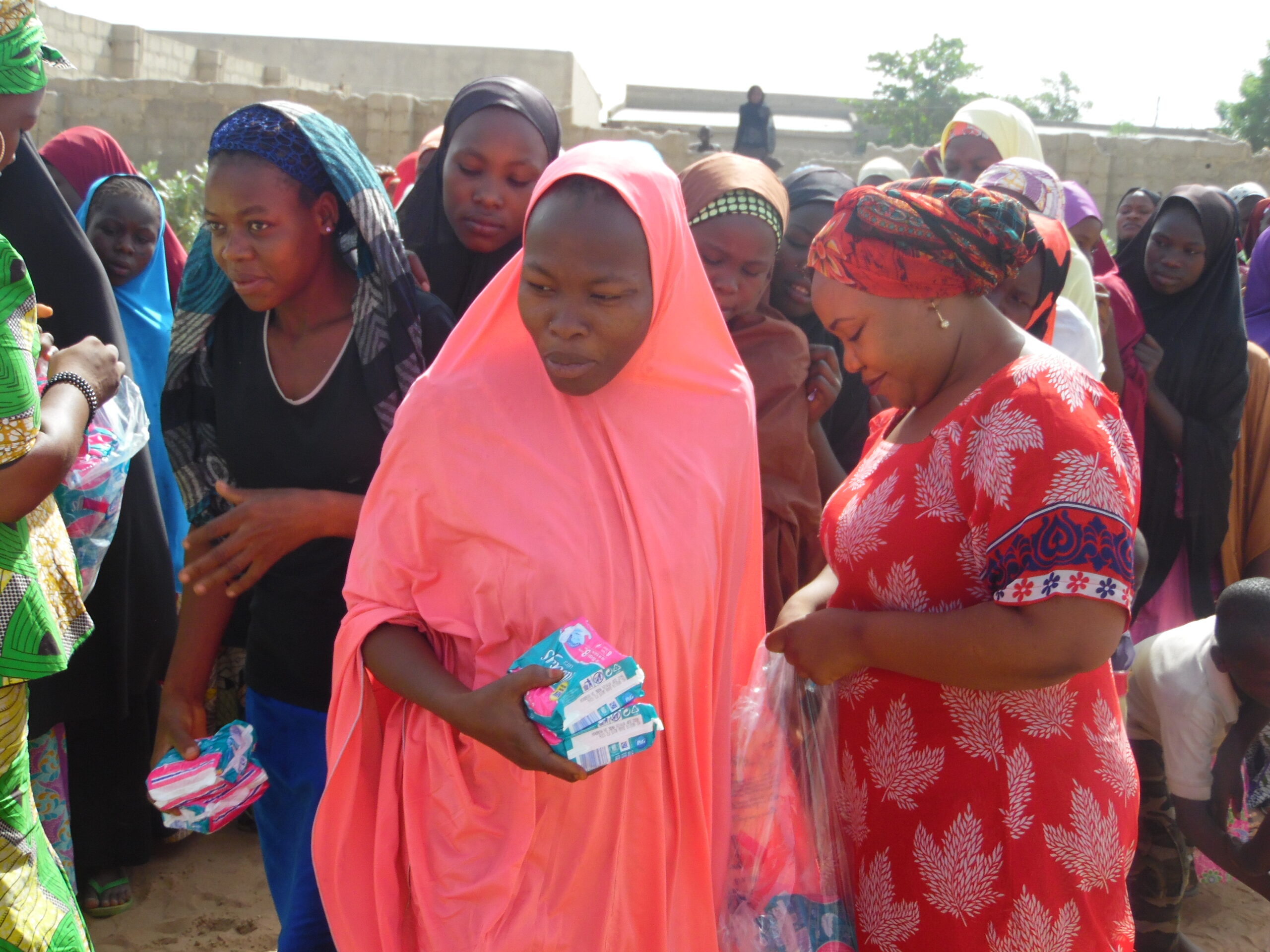“Helping women by providing #PadsForBorno”
May 5 Educating about and providing women with supplies for menstruation can be difficult, especially among vulnerable groups. Musa Temidayo, 26, a Commonwealth Correspondent from Nigeria, tells about providing supplies to women in displaced persons camps.
Educating about and providing women with supplies for menstruation can be difficult, especially among vulnerable groups. Musa Temidayo, 26, a Commonwealth Correspondent from Nigeria, tells about providing supplies to women in displaced persons camps.
Borno State, the second-largest Nigerian state by area, is in north-eastern Nigeria. Its capital is Maiduguri. Unfortunately, violence has claimed a lot of lives and uprooted people from their homes, and the crisis has adversely affected the most vulnerable civilian populations, particularly women and children.
Teenage girls constitute a vulnerable group in relation to their health and societal status. It is estimated that one in ten girls in sub-Saharan Africa misses school at some point because she is having her period. Imagine the statistics in a state that is fighting terrorist groups and millions in Internal Displaced Persons (IDP) camps, coupled with the high rate of illiteracy in the north-east part of the country.
I was privileged to be part of Sanitary Aid Nigeria team in Borno State with the aim of providing free sanitary pads and to educate the IDPs on menstrual hygiene. The project happened across three Internal Displaced Persons Camps in Borno State, with over 400 girls being reached.
Our first stop was at the Mairi Kuwait IDP camp, then we moved on to Jiddari Polo IDP camp. We lectured the girls on menstrual awareness and how to keep proper hygiene. After the session, the sanitary pads were distributed to the girls and a demonstration was done on how to use the pad.
 Some of the beneficiaries shared their experiences on menstruation. Afodia from Biu, 16, who is in primary 2 at this camp, shared that she uses rags and used cloths for her periods, which she will wash and re-use again. Happiness, who is a mother of two from Michika Adamawa, shared that after the death of her father, she could not get access to sanitary pads again. The majority of these girls in the host communities live in shanties and make-shift tents pending the time that the insurgency will be over and hopefully they can return to their home communities.
Some of the beneficiaries shared their experiences on menstruation. Afodia from Biu, 16, who is in primary 2 at this camp, shared that she uses rags and used cloths for her periods, which she will wash and re-use again. Happiness, who is a mother of two from Michika Adamawa, shared that after the death of her father, she could not get access to sanitary pads again. The majority of these girls in the host communities live in shanties and make-shift tents pending the time that the insurgency will be over and hopefully they can return to their home communities.
At our last stop at Medinatu IDP camp, the atmosphere there had me feeling teary. After we had secured a spot to use as base for the distribution and sensitisation session, the phalanx of women and girls outside the gate could not wait for us to call them in. They almost broke down the gate of the compound we were using as base, just to gain entry into the compound. With the help of the camp coordinator and other locals around the camp, we were able to prevent a stampede, and were able to tell the women to come in batches.
 When the first batch of women came in, we showed them how to use the sanitary pad and why their menstrual hygiene is very important. Among them are many who have not used a proper sanitary pad before. The majority of them use cloths and other alternative means. The second batch came in and we repeated the same process with them. After sharing the sanitary pads, the IDPs gave their thanks and on their faces, I could see their happiness. But in my mind, I wish we could do more for them. Moving out of the compound, we could see other groups of girls coming towards the compound.
When the first batch of women came in, we showed them how to use the sanitary pad and why their menstrual hygiene is very important. Among them are many who have not used a proper sanitary pad before. The majority of them use cloths and other alternative means. The second batch came in and we repeated the same process with them. After sharing the sanitary pads, the IDPs gave their thanks and on their faces, I could see their happiness. But in my mind, I wish we could do more for them. Moving out of the compound, we could see other groups of girls coming towards the compound.
In total, we reached 400 girls at all the three camps and we are still willingly to do more in months to come. None of this outreach work would have been possible if not for Karo of Sanitary Aid Nigeria, who Is the brain behind this initiative, and Tobi Mbaya. who led the Borno Team.
Photo credits: courtesy of Musa Temidayo
……………………………………………………………………………………………………………
About me: I am an education and research enthusiast and essayist who studied International Relations at Obafemi Awolowo University.
Once upon a time, I was the Editor-in-Chief for DIPLOMAG.
I am an Ambassador for A world At School (UK), Director of Advocacy for Organization of African Youth for Development & Peace and also belongs to several bodies with a great passion for education advocacy, human rights and youth development.
I am also the fictional leader of #Taylor-swift’s fan in Nigeria.
You can reach me on email: musatemidayo@yahoo.com
…………………………………………………………………………………………………………………
Opinions expressed in this article are those of the author and do not necessarily represent the views of the Commonwealth Youth Programme. Articles are published in a spirit of dialogue, respect and understanding. If you disagree, why not submit a response?
To learn more about becoming a Commonwealth Correspondent please visit: http://www.yourcommonwealth.org/submit-articles/
…………………………………………………………………………………………………………………




